- Home
- J. T. Edson
Goodnight's Dream (A Floating Outfit Western Book 4) Page 12
Goodnight's Dream (A Floating Outfit Western Book 4) Read online
Page 12
On making for the herd, Luhmere and Turner directed their horses in Dusty’s direction. Like others before and after them, they failed to form a correct estimation of the small Texan’s full potential. Studying the insignificant figure lounging on the paint, Luhmere concluded that he might be provoked into a reckless attempt at stopping them cutting the herd. Like Dusty, Luhmere understood the danger and figured that it could be exploited to its full advantage. Going up against that small cuss would be a safer proposition than tangling head-on with Goodnight.
Leering in a taunting manner, calculated to make an impetuous youngster—eager to prove himself a worthy nephew of Colonel Goodnight—act in a hotheaded manner, Luhmere waited for Dusty’s first hostile move. When none came, he swung his horse to pass close on Dusty’s right while Turner aimed his horse to go by on the other side.
Slowly Dusty lifted his right hand towards his Stetson, giving the impression that he either meant to mop his brow or push it back and scratch his head. Nothing in the way he moved gave warning of his true purpose, but he was studying every detail and making his plans. Each of the men carried a Spencer carbine cradled across his left arm. While Turner’s barrel pointed towards Dusty, that of Luhmere’s lined outwards and neither weapon’s hammer was cocked. One of the Spencer’s failings was that it must be cocked manually before each shot. Dusty figured that the drawing back of the hammer ought to give him just the split-second advantage he needed.
From its slow, hesitant crawl upwards, Dusty’s hand flashed into the sudden, rapid movement for which he was famous. Twitching off the Stetson, he spun it as hard as he could at Luhmere’s face. Instinctively the man jerked himself backwards in the saddle and, belatedly, tried to throw up his right hand to deflect the flying hat. In doing so he jerked at his horse’s mouth, causing it to rear in protest. Luhmere was sufficiently off balance for the impact of the hat to do its work. With a startled yell, he felt himself slipping backwards over the cantle of his saddle. Losing his hold on the Spencer as he tried to retain his seat, he fell rump-first to the ground.
After hurling the hat, Dusty gave his attention to the second man. Swiveling in the paint’s saddle, he saw Turner starting to thumb back the Spencer’s hammer and set about correcting the threat. Even in the urgency of the situation, Dusty did not forget to think. He realized that if he deflected the carbine to his front, he might endanger the lives of the men before him. So he grasped the end of the barrel and turned it to his rear. Once he was no longer in danger, Dusty jerked savagely at the weapon. Just an instant too late, he saw that Turner had acted faster than he expected. The hammer had been taken far enough backwards to be operative. Combined with the force of Dusty’s pull and his own resistance, Turner squeezed the trigger. With a bellow, the carbine spat out a ball that split the air by the ear of its user’s horse and flew on to drive into the ribs of a grazing steer. Letting out an agony-filled bellow, the stricken animal went kicking to the ground. Its companions, already made restless by the wolves during the night and the recent arrival of the D4S steers, needed no other excuse to break and run.
Startled by the close-passing bullet and the heat of the carbine’s muzzle-blast, Turner’s horse humped its back and took off in a leaping buck. Timing his move perfectly, Dusty gave a harder heave at the carbine and twisted it from Turner’s grasp. Struggling to keep astride the horse, Turner lost his balance as the Spencer left his fingers. Pitching out of the saddle, the man crashed to the ground and looked as if he was trying to plow up a furrow with his chin.
At the sight of his cattle stampeding, Goodnight opened his mouth to bellow orders. Starting to rein his horse around, he saw Scroggins begin to lift the Sharps. Down lashed the rancher’s right hand, sliding the offside Colt from its holster and getting off a fast shot. Fast or not, it flew in a useful way. Striking the bottom of the rifle’s barrel, the bullet batted it from Scroggins’ hands; although, it must be confessed, the rancher had not tried for such a spectacular effect. Seeing that he had removed the danger from that source, Goodnight continued to turn his horse and, holstering his Colt, sent it leaping after the departing cattle.
To give them their due, the other ranchers showed no hesitation in going to help Goodnight. In addition to their interest in whether the herd did hold their cattle, Wardle and the others had the cattleman’s instinct to help when another of their kind found himself in trouble. Even before Dusty could swing his paint into movement, the ranchers and their men urged their horses on Goodnight’s heels. Easing his big horse around the unseated Turner, Dusty galloped after the other to lend a hand at stopping the stampede.
Spitting out curses and shaking his stinging hands, Scroggins rode towards the two hardcases.
‘I’ll get the bas—!’ Scroggins swore, snatching at his holstered revolver and glaring rage after Goodnight.
‘Forget him and catch our hosses!’ yelled Luhmere, getting to his feet and stamping furiously on Dusty’s hat. ‘We’d best get the hell away from here.’
‘Yeah!’ agreed Turner, rising and retrieving his carbine. ‘It didn’t work like it should have. I thought Wardle was supposed to hate Goodnight’s guts.’
‘And me,’ Luhmere admitted. ‘He’s got no cause to care for copperheads.’
‘Looks like he don’t count Goodnight that way,’ Turner growled. ‘And when him and them others find out that Goodnight spoke the truth, they’re going to be wanting to ask us some questions.’
Maybe Scroggins could not be rated among the world’s great thinkers, but he fully understood what his companions meant. Their motives for bringing the four ranchers to Goodnight’s herd would not stand up to close scrutiny. Already cattlemen were building up a reputation for dispensing effective, if not entirely legal, justice to transgressors against their code. Finding out why the trio acted as they had would cause the ranchers to act in a swift, summary and permanent manner to prevent a recurrence. So Scroggins wasted no more time and started his wiry horse moving after Luhmere’s and Turner’s mounts.
‘What do we do now, Lou?’ Turner inquired. ‘We’ve done what we came to do, stampeding Goodnight’s herd that way.’
‘Goodnight’s still alive,’ Luhmere pointed out. ‘The bosses wanted him dead. We’ll see if we can find somewhere to hide out. Then one of us can head up to Throckmorton and see if they want anything more doing while the other two keep an eye on how things’re going down here.’
‘It’d be best,’ Turner said and walked over to collect Scroggins’ rifle.
When the buckskin-clad man returned with the horses, the trio mounted. They saw the herd trailing off in the distance and exchanged grins. Then they swung their mounts and rode away chuckling and commenting on their success.
‘Stampede!’ the Texans called it. Mexicans said, ‘Estampida.’ Both words meant what the ancient Greek cattle-herders termed ‘fear-panic’ running; trouble, danger, possibly sudden and violent death for the men trying to stop the fleeing cattle.
Once started, the two thousand head of longhorn steers tore across the range at their best speed. Hooves thundered and shook the ground with the fury of their combined impact. Occasionally horns clacked or clicked against each other when two of the racing animals drew close together. Vocal as the longhorn might be at times, with bellows and softer notes ranging through the emotions from fear or love to challenge and roaring rage, it made no sound when running. At such a time every breath of air sucked in was expended on propelling the body onwards as fast as the steel-spring power of the leg muscles could carry it. Wild-eyed, heads tossing, tails spiked into the air, the steers raced on in their wild, mindless, unthinking fear.
Not all of the herd followed its self-appointed leaders. Small groups broke away from the main bunch, cutting off at angles from the line of the stampede and fleeing for the brush-country from which they had been gathered at much cost in sweat, blood and hard work by the Swinging G cowhands.
Cursing, hard-riding men followed the fast-running, disintegrating herd. While so
me of them tried to reach the lead steers, others attempted to turn back the segments that separated from the main body. In this Wardle’s men found themselves at a disadvantage. Going after a bunch of cow thieves called for a horse with ‘bottom’, the ability to travel long and fast, rather than for skill at working cattle. So, for the most part, they sat horses not suited to handling fear-spooked steers. Although they and the Swinging G’s six hands—the rest of the crew had formed the night guard and were already back at the bunkhouse asleep—did their best, a number of the groups escaped and fled.
After saving Dusty from being back-shot by Scroggins, Goodnight gave his full attention to retrieving his herd. Once cattle, especially longhorn steers, started to run in wild stampede, there was considerable danger to themselves and the men trying to halt them. Unless brought to a halt by their human guardians, the cattle would run on until stopped by sheer exhaustion. During that time they would also be scattered across the range and have worked off every ounce of spare fat and meat. There was, Goodnight knew, only one way to end a stampede and he prepared to attempt it.
Not that Goodnight was given much chance to think on the matter. The horse he sat was a fourteen-hand bayo-cebrunos gelding of Spanish blood and with generations of cattle-working savvy behind it. Seeing the stampede, the gelding needed no urging and little instruction from its rider on what it would be required to do.
Before the rancher had returned his right hand to the reins from holstering his Colt, the bayo-cebrunos started running. In fact, skilled rider as he was, he could not have halted or held in his mount at such a moment. Stretching itself at full gallop, the gelding sped across the range after the fleeing cattle.
Despite the publicity later given to firing revolver shots alongside the lead steer’s head as a means of turning a herd, it was a method only resorted to in the direst emergency or by green hands. Perhaps it would be tried as a last ditch attempt to make the cattle swing clear of a gully, canyon rim or similar natural hazard. All too often, it did no more than spur on and further frighten the herd. So Goodnight gave no thought to his holstered Colts and concentrated on guiding the fast-moving bayo-cebrunos.
Experience had taught Goodnight that running cattle tended to turn to the right more willingly than to the left. He attributed the trait to the fact that, like human beings, the majority of animals are ‘right handed’ and preferred to turn at speed in the direction that offered them the greatest strength and control. Whatever the reason, Goodnight wanted to utilize it as a means to make his cattle ‘mill’ and so be forced to stop.
Achieving that intention presented a problem. He was heading for the right side of the herd and must work on the left if he hoped to make the most of the steers’ turning habits. Going to the head of the line and crossing over was possible, but risky, and he saw a quicker, safer way of doing it.
Excited and eager as the bayo-cebrunos had been at first, he knew it was still under control and would obey his orders. In obedience to its rider’s manipulations of the reins it swung towards the rear of the herd. Ahead sprawled the mangled body of a steer which had fallen and been trampled to death under the pounding hooves of its companions. Ignoring the gory ruin, the gelding ran on. It bounded over the carcass without hesitation, hardly breaking its stride. For a moment it plunged among the swirling dust cloud churned up by the steers’ hooves. Cutting by the very tails of the animals running at the drag, it passed around them and started to hare along the left flank towards the point.
Suddenly a dozen steers quit the herd, rushing blindly in the bayo-cebrunos’ direction. With sharp-horned death bearing down its way, the little gelding gave no sign of flinching. A touch of Goodnight’s spurs only helped to confirm the horse’s appreciation of the danger. With that cat-footed agility so much sought and rarely found, the bayo-cebrunos jinked clear of the leading steer and avoided those following it. Conquering the horse’s momentary inclination to give chase to the bunch-quitters, Goodnight kept it running towards the head of the stampeding line.
Realizing what Goodnight planned, and aware of his reasons for going to the left, the other ranchers followed him. Best mounted of his party, Wardle took the lead and pounded along close behind Goodnight in the desperate race to reach the point. On they tore, relying upon luck and their mounts’ inborn instincts to avoid holes and other hazards. A slip of a foot might dislodge the rider and pitch him from the saddle. Or for the horse to fall, the result would be equally fatal. Long-horned, sharp-hoofed death ran by their sides and there would be small chance of escape should any mishap befall them. Despite that, the men still held their horses to a gallop and crossed rough ground over which a fancy-coated Eastern sportsman would only canter while following a hound pack after a fox.
Not a mile ahead loomed the start of thickly overgrown, broken brush country and Goodnight knew the cattle must be turned, if not completely stopped, before they reached it. Once they smashed into the thorn-bristling growth, the riders could no longer keep by the steers and so would be unable to bring the herd to a halt.
At last Goodnight approached the lead steer, a big, scimitar-horned, ring-streaked blue brute which had given the Swinging G cowhands trouble ever since being forced out of the black chaparral and guajilla thickets which had been its home during ten years of life.
Even without Goodnight’s signals, the bayo-cebrunos knew what had to be done. Although lacking some three hundred and seventy pounds of the steer’s almost twelve hundred pound heft, the gelding moved alongside it and tried to shoulder it into a turn. When that failed, the horse’s head snaked around and its teeth chopped at the side of the steer’s throat. Neither the charge nor the bite made the steer alter course.
Seeing the attempts fail, Goodnight nudged his heels gently against the gelding’s side. Although it had run at a full gallop for nearly a mile, it extended itself and actually increased its speed. Slowly it drew ahead of the steer and its rider sat level with the wicked horns. Carefully Goodnight edged the horse nearer and made sure of his balance as he prepared to take a desperate chance. Slipping his right foot from the stirrup iron, he lashed out with his leg. The toe of his boot thudded hard against the side of the steer’s head. Snorting, the longhorn jerked away but the gelding crowded after it. Again Goodnight kicked and, seeking to avoid the punishment, the steer continued to move away. The bayo-cebrunos missed its footing and stumbled. Deftly, with a riding skill a Comanche would have admired, Goodnight adjusted his balance to assist it. For a moment the rancher wondered if it was his finish. Then the horse regained its footing and plunged in to let him slam another kick at the steer.
Close behind Goodnight, Wardle watched in silent admiration. Then he gave his full attention to his own part. In the way of their kind, the steers following the ring-streaked blue swung after it as it turned and Wardle was ready to prevent any attempt to deviate from the curve started by Goodnight’s kicks. All along the left side of the herd, men prepared to ensure there was no breakaway from the course forced upon its leader.
Unlike his uncle, Dusty had gone along the right flank. The big paint had carried him towards the point but he knew that he could do little to help and so had not caught up to the lead steer. With the other men on the right side, he had given his efforts to holding back hopeful strays. Watching Goodnight turn the ring-streaked blue, Dusty was aware of the danger to the men on his side of the herd.
From a straight line the stampede slowly began to form a circle. The cowhands on the inner flank whirled their horses to ride clear. Last to go was Dusty. After all the others had ridden out, he sent his paint running for the rapidly narrowing gap between the point and drag. He timed the departure just right, having ensured that none of the hands were trapped in the ring and leaving himself before the lead steer came close enough to take fright at his sudden appearance. Once beyond the cattle, he reined the paint around and waited to see if there was anything more he could do.
Instead of allowing the blue steer to join behind the drag and make a complete
circle, Goodnight forced it to turn inwards before it reached the last of the cattle. Once again the others followed their leader, passing along the right flank and forming an ever-decreasing spiral. The cowhands did their best to keep the cattle moving, causing them to mill closer and closer until the big blue found itself unable to continue forward due to the pressure of the others around it. In that way the movement of the herd was brought to a halt.
‘Circle them, keep them held!’ Goodnight yelled to the cowhands.
There might still be danger if some of the steers broke out of the tight-packed mass. However, the worst of the trouble was over and the rancher could withdraw to try to assess what losses he had suffered through the stampede. Nor did a man of Goodnight’s character forget those who had helped to halt the cattle.
‘Thanks, Tom, boys,’ he said as the other ranchers rode towards him.
‘You’d’ve done the same for any of us, Charlie,’ Wardle replied. ‘Our boys’ll tend to the herd. You send your crew off to see what they can gather from the strays.’
Nodding gratefully, Goodnight turned to give the orders. He knew that the stampede had caused a serious loss of stock. Just looking at the packed-together mass of the remainder told him that. Just how bad the losses would be, he could not tell for certain; but he estimated well over five hundred steers had broken away. A few would be dead, others picked up and returned by his men. The majority of the escapees were headed back to the brush country as fast as their legs could carry them. Even if the Mineral Wells men accepted his offer, it looked like he would still be a lot of cattle short of the number required to fulfill his contract with the Army.

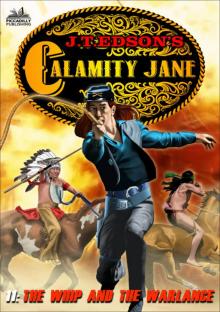 Calamity Jane 11
Calamity Jane 11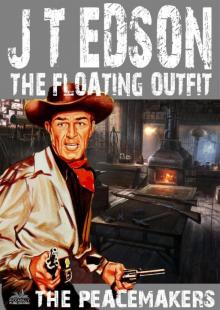 The Floating Outift 33
The Floating Outift 33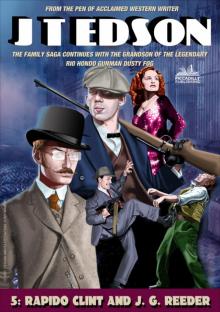 Cap Fog 5
Cap Fog 5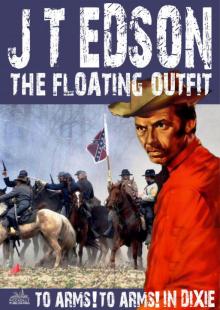 The Floating Outfit 34
The Floating Outfit 34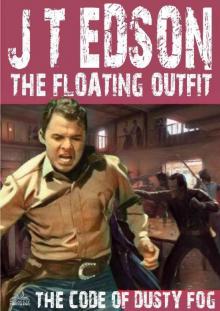 The Code of Dusty Fog
The Code of Dusty Fog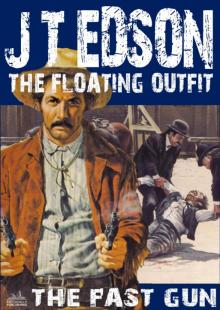 The Floating Outfit 21
The Floating Outfit 21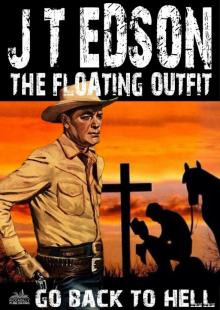 The Floating Outift 36
The Floating Outift 36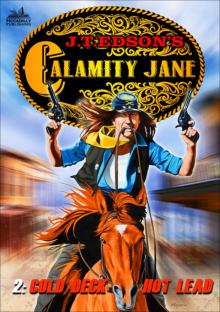 Calamity Jane 2
Calamity Jane 2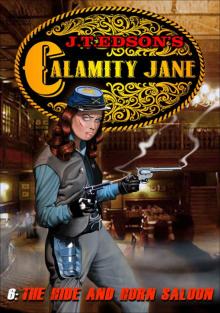 Calamity Jane 6: The Hide and Horn Saloon (A Calamity Jane Western)
Calamity Jane 6: The Hide and Horn Saloon (A Calamity Jane Western)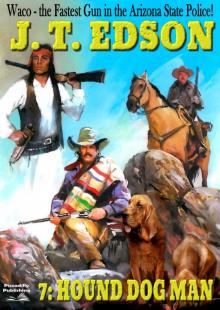 Waco 7
Waco 7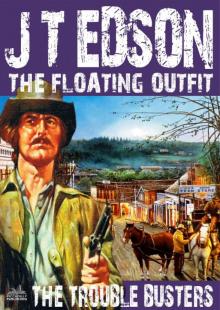 The Floating Outfit 25
The Floating Outfit 25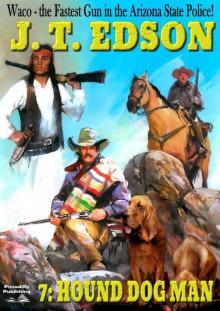 Waco 7: Hound Dog Man (A Waco Western)
Waco 7: Hound Dog Man (A Waco Western)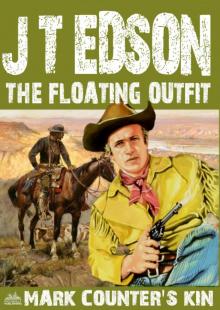 The Floating Outfit 47
The Floating Outfit 47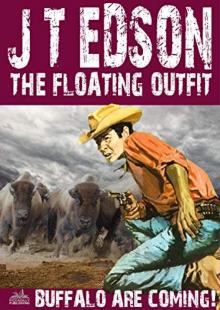 The Floating Outfit 42: Buffalo Are Coming!
The Floating Outfit 42: Buffalo Are Coming!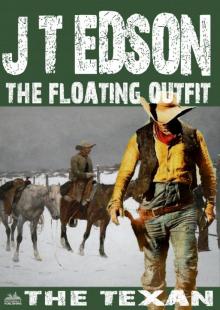 The Floating Outfit 46
The Floating Outfit 46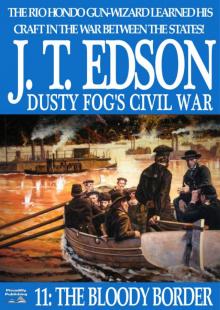 Dusty Fog's Civil War 11
Dusty Fog's Civil War 11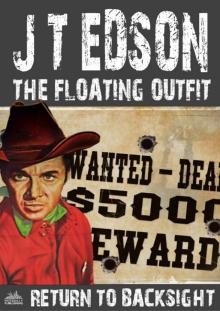 The Floating Outfit 61
The Floating Outfit 61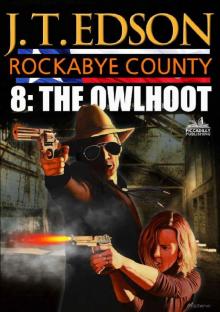 The Owlhoot
The Owlhoot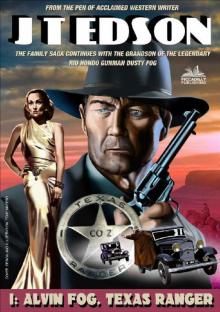 Alvin Fog, Texas Ranger
Alvin Fog, Texas Ranger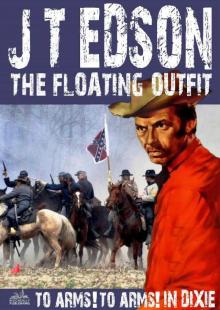 The Floating Outfit 34: To Arms! To Arms! In Dixie! (A Floating Outfit Western)
The Floating Outfit 34: To Arms! To Arms! In Dixie! (A Floating Outfit Western)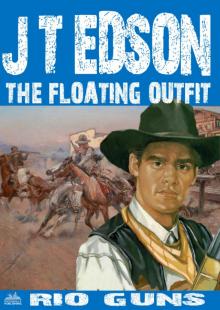 The Floating Outfit 44
The Floating Outfit 44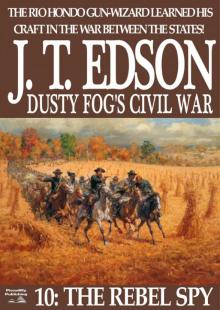 Dusty Fog's Civil War 10
Dusty Fog's Civil War 10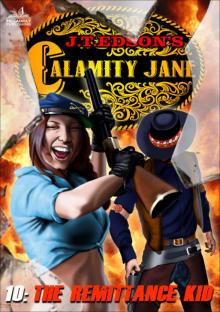 Calamity Jane 10
Calamity Jane 10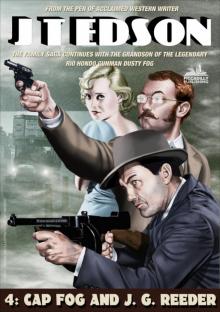 Cap Fog 4
Cap Fog 4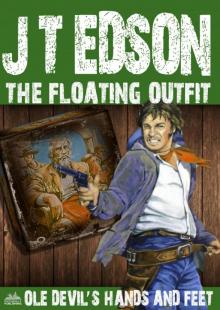 The Floating Outfit 51
The Floating Outfit 51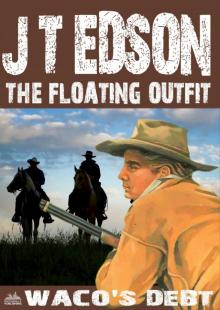 The Floating Outfit 50
The Floating Outfit 50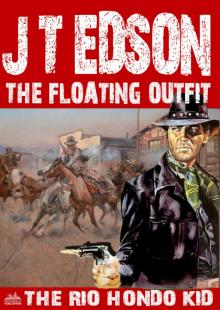 The Floating Outfit 49
The Floating Outfit 49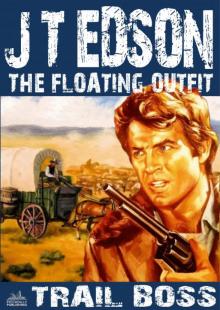 The Floating Outfit 10
The Floating Outfit 10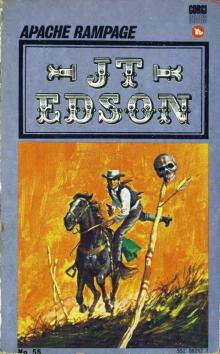 Apache Rampage
Apache Rampage The Floating Outfit 15
The Floating Outfit 15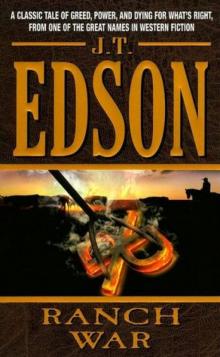 Ranch War
Ranch War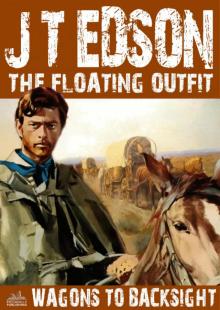 The Floating Outfit 11
The Floating Outfit 11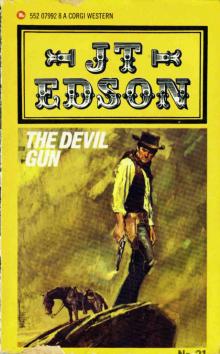 The Devil Gun
The Devil Gun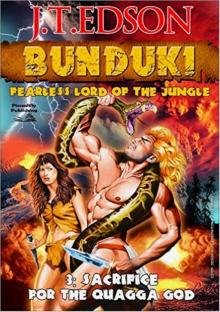 Sacrifice for the Quagga God (A Bunduki Jungle Adventure Book 3)
Sacrifice for the Quagga God (A Bunduki Jungle Adventure Book 3)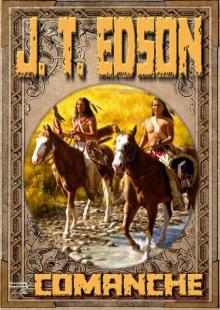 Comanche (A J.T. Edson Western Book 1)
Comanche (A J.T. Edson Western Book 1)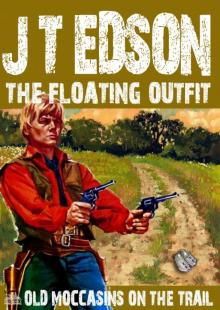 The Floating Outfit 48
The Floating Outfit 48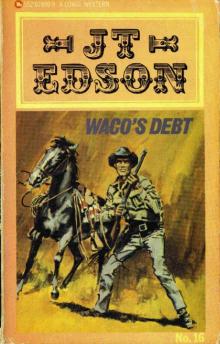 Wacos Debt
Wacos Debt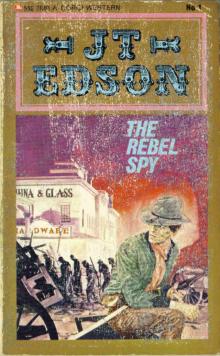 The Rebel Spy
The Rebel Spy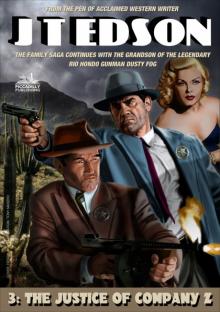 Cap Fog 3
Cap Fog 3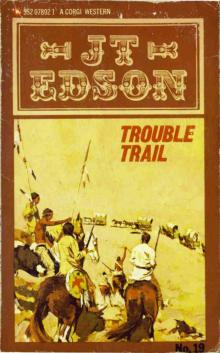 Trouble Trail
Trouble Trail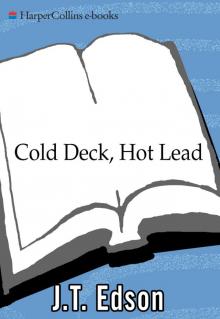 Cold Deck, Hot Lead
Cold Deck, Hot Lead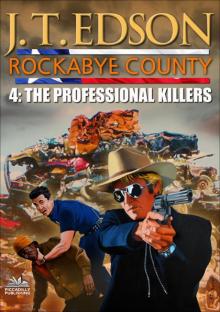 Rockabye County 4
Rockabye County 4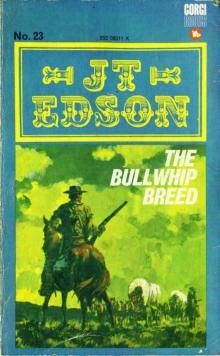 The Bullwhip Breed
The Bullwhip Breed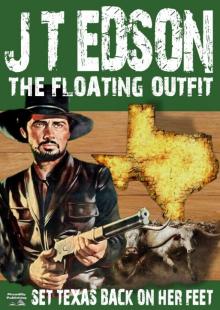 Set Texas Back On Her Feet (A Floating Outfit Western Book 6)
Set Texas Back On Her Feet (A Floating Outfit Western Book 6)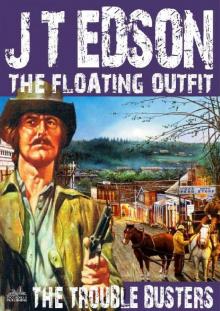 The Floating Outfit 25: The Trouble Busters (A Floating Outfit Western)
The Floating Outfit 25: The Trouble Busters (A Floating Outfit Western)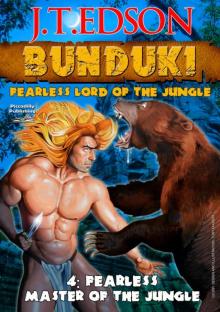 Fearless Master of the Jungle (A Bunduki Jungle Adventure
Fearless Master of the Jungle (A Bunduki Jungle Adventure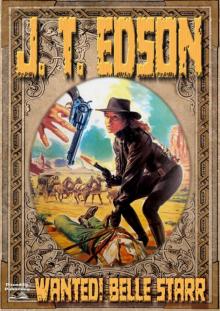 Wanted! Belle Starr!
Wanted! Belle Starr!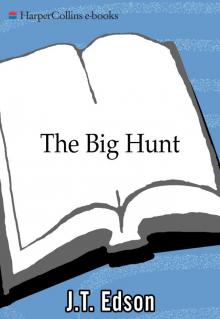 The Big Hunt
The Big Hunt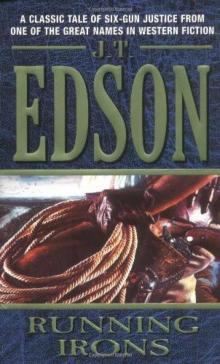 Running Irons
Running Irons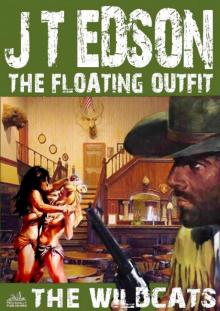 The Floating Outfit 19
The Floating Outfit 19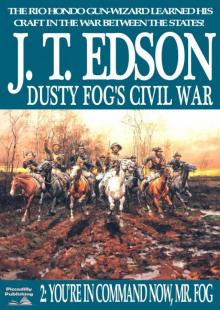 You're in Command Now, Mr Fog
You're in Command Now, Mr Fog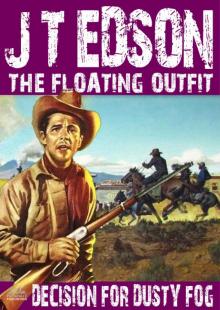 The Floating Outfit 27
The Floating Outfit 27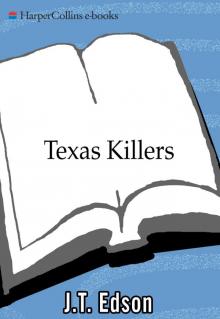 Texas Killers
Texas Killers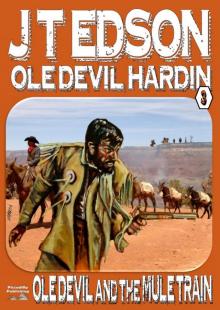 Ole Devil and the Mule Train (An Ole Devil Western Book 3)
Ole Devil and the Mule Train (An Ole Devil Western Book 3)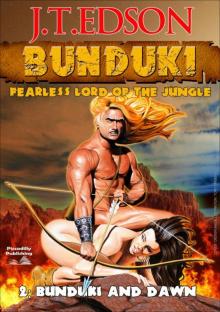 Bunduki and Dawn (A Bunduki Jungle Adventure Book 2)
Bunduki and Dawn (A Bunduki Jungle Adventure Book 2)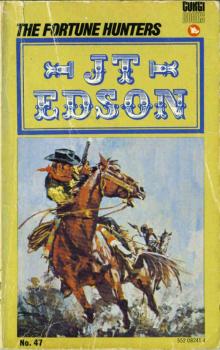 The Fortune Hunters
The Fortune Hunters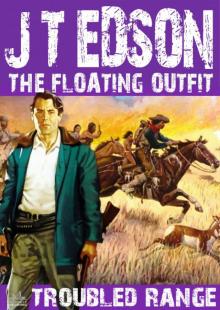 The Floating Outfit 12
The Floating Outfit 12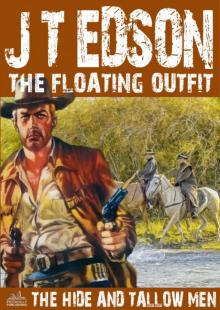 The Hide and Tallow Men (A Floating Outfit Western. Book 7)
The Hide and Tallow Men (A Floating Outfit Western. Book 7)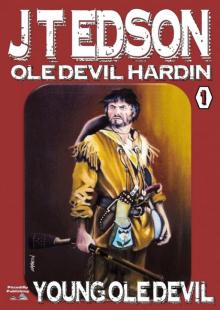 Young Ole Devil
Young Ole Devil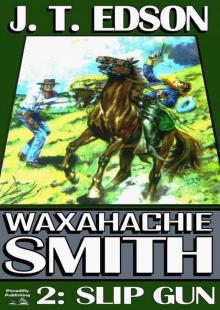 Slip Gun
Slip Gun The Drifter
The Drifter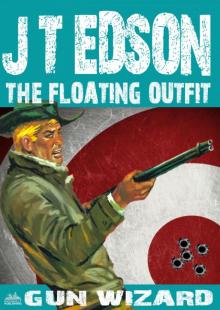 The Floating Outfit 45
The Floating Outfit 45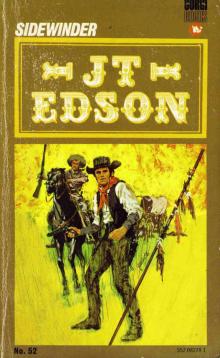 Sidewinder
Sidewinder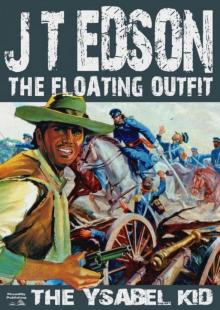 The Ysabel Kid
The Ysabel Kid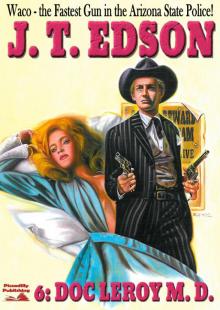 Waco 6
Waco 6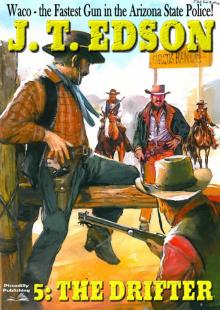 Waco 5
Waco 5 Point of Contact
Point of Contact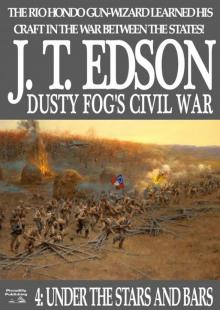 Under the Stars and Bars (A Dusty Fog Civil War Western Book 4)
Under the Stars and Bars (A Dusty Fog Civil War Western Book 4)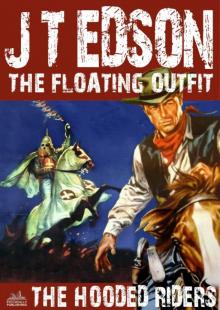 The Floating Outfit 9
The Floating Outfit 9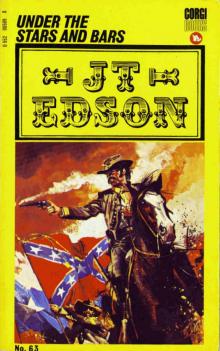 Under the Stars and Bars
Under the Stars and Bars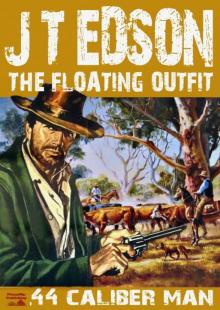 .44 Caliber Man
.44 Caliber Man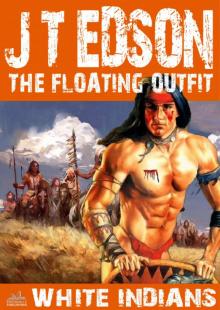 The Floating Outfit 17
The Floating Outfit 17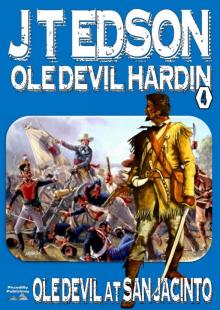 Ole Devil at San Jacinto (Old Devil Hardin Western Book 4)
Ole Devil at San Jacinto (Old Devil Hardin Western Book 4)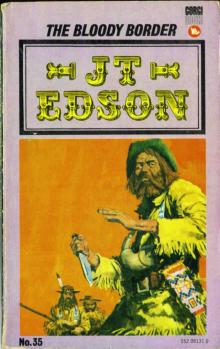 The Bloody Border
The Bloody Border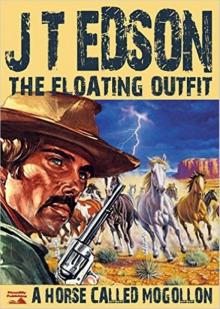 A Horse Called Mogollon (Floating Outfit Book 3)
A Horse Called Mogollon (Floating Outfit Book 3)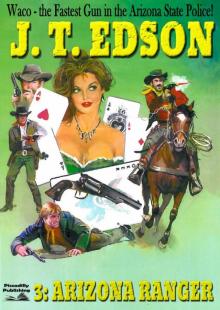 Waco 3
Waco 3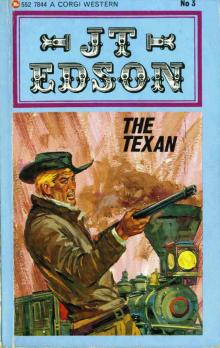 The Texan
The Texan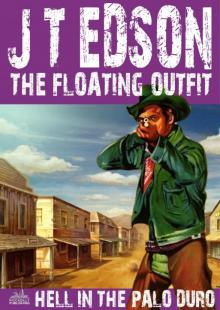 The Floating Outfit 35
The Floating Outfit 35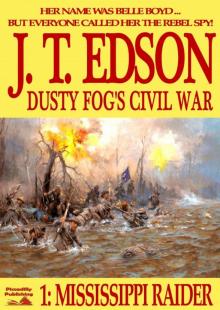 Mississippi Raider
Mississippi Raider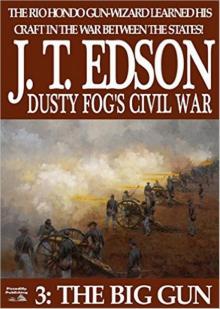 The Big Gun (Dusty Fog's Civil War Book 3)
The Big Gun (Dusty Fog's Civil War Book 3)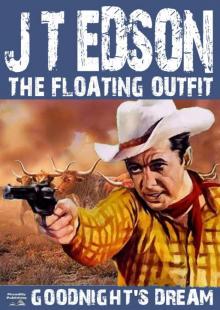 Goodnight's Dream (A Floating Outfit Western Book 4)
Goodnight's Dream (A Floating Outfit Western Book 4) Waco 4
Waco 4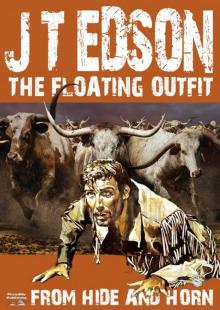 From Hide and Horn (A Floating Outfit Book Number 5)
From Hide and Horn (A Floating Outfit Book Number 5)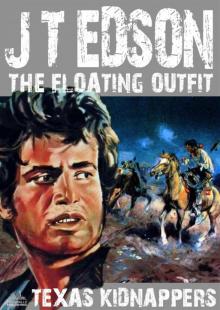 The Floating Outfit 18
The Floating Outfit 18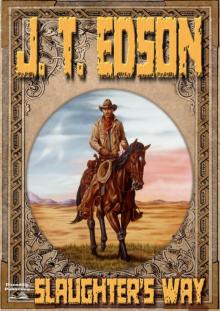 Slaughter's Way (A J.T. Edson Western)
Slaughter's Way (A J.T. Edson Western)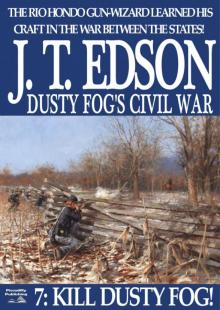 Dusty Fog's Civil War 7
Dusty Fog's Civil War 7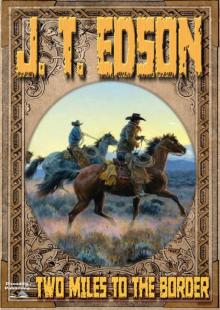 Two Miles to the Border (A J.T. Edson Western)
Two Miles to the Border (A J.T. Edson Western)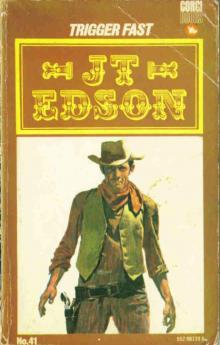 Trigger Fast
Trigger Fast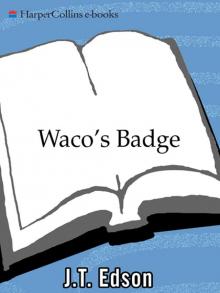 Waco's Badge
Waco's Badge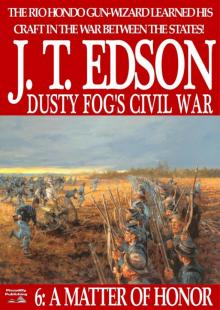 A Matter of Honor (Dusty Fog Civil War Book 6)
A Matter of Honor (Dusty Fog Civil War Book 6)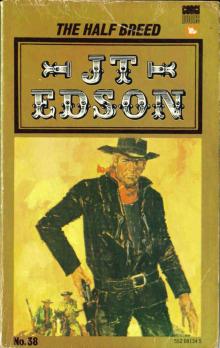 The Half Breed
The Half Breed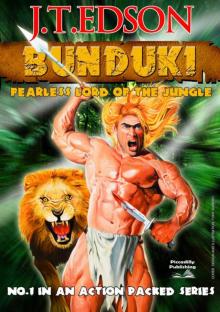 Bunduki (Bunduki Series Book One)
Bunduki (Bunduki Series Book One)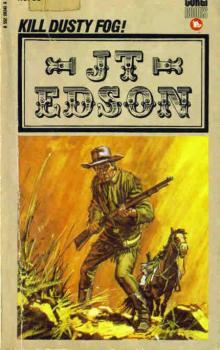 Kill Dusty Fog
Kill Dusty Fog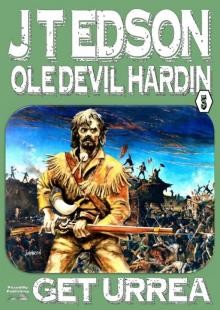 Get Urrea! (An Ole Devil Hardin Western Book 5)
Get Urrea! (An Ole Devil Hardin Western Book 5)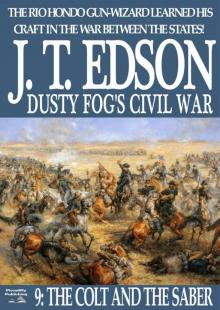 Dusty Fog's Civil War 9
Dusty Fog's Civil War 9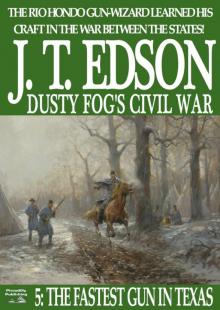 The Fastest Gun in Texas (A Dusty Fog Civil War Book 5)
The Fastest Gun in Texas (A Dusty Fog Civil War Book 5)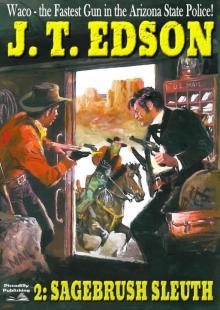 Sagebrush Sleuth (A Waco Western #2)
Sagebrush Sleuth (A Waco Western #2)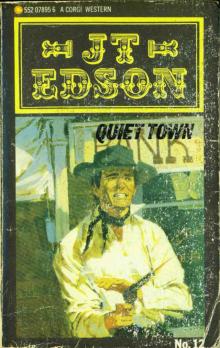 Quiet Town
Quiet Town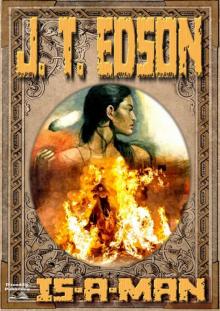 Is-A-Man (A J.T. Edson Standalone Western)
Is-A-Man (A J.T. Edson Standalone Western)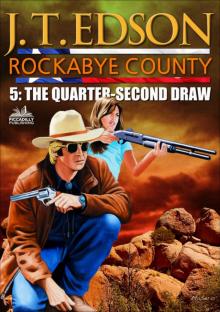 Rockabye County 5
Rockabye County 5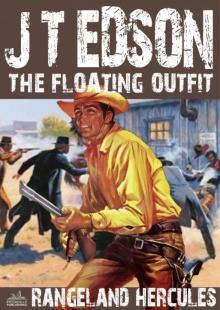 The Floating Outfit 14
The Floating Outfit 14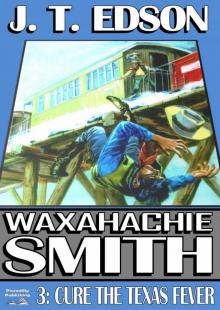 Cure the Texas Fever (A Waxahachie Smith Western--Book 3)
Cure the Texas Fever (A Waxahachie Smith Western--Book 3)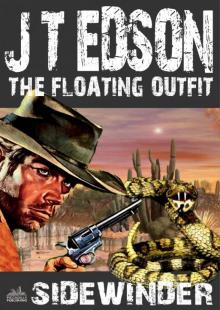 The Floating Outfit 13
The Floating Outfit 13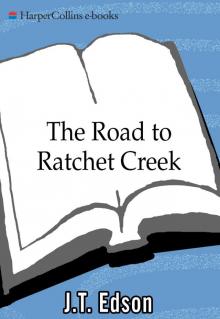 The Road to Ratchet Creek
The Road to Ratchet Creek